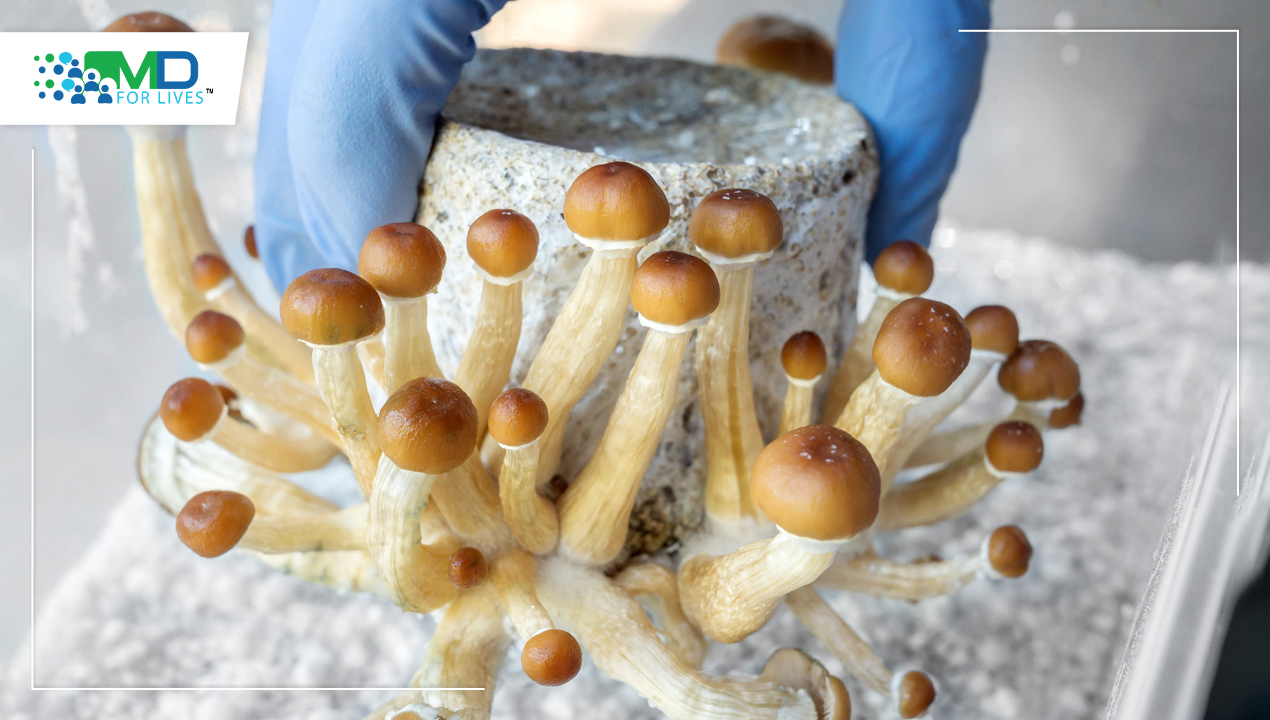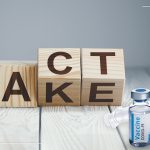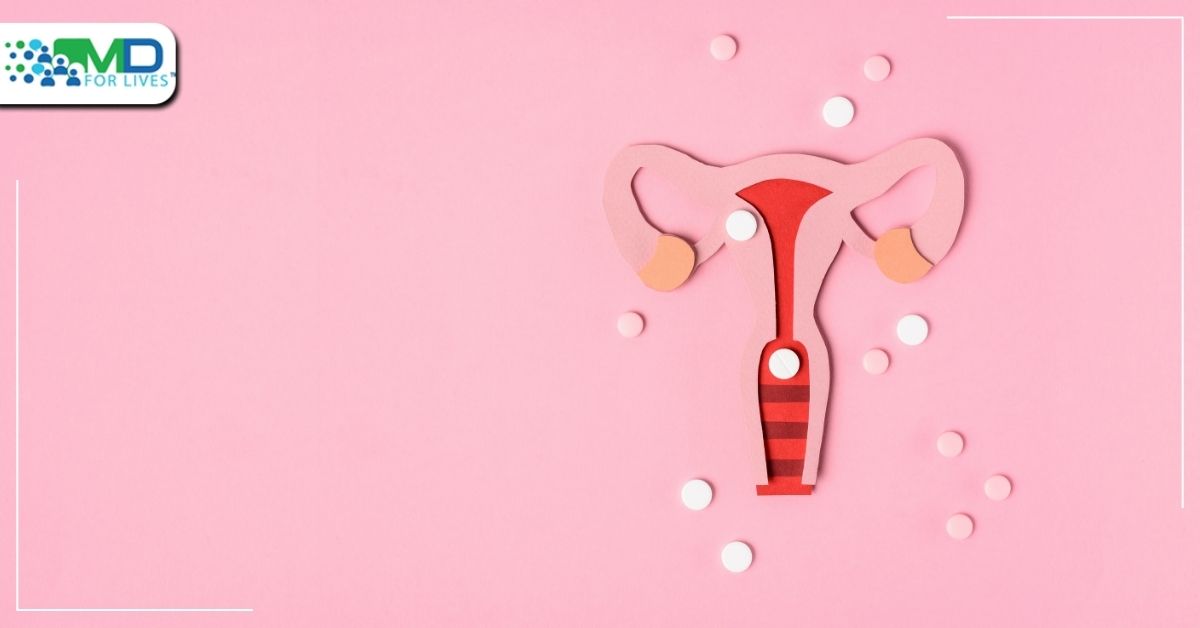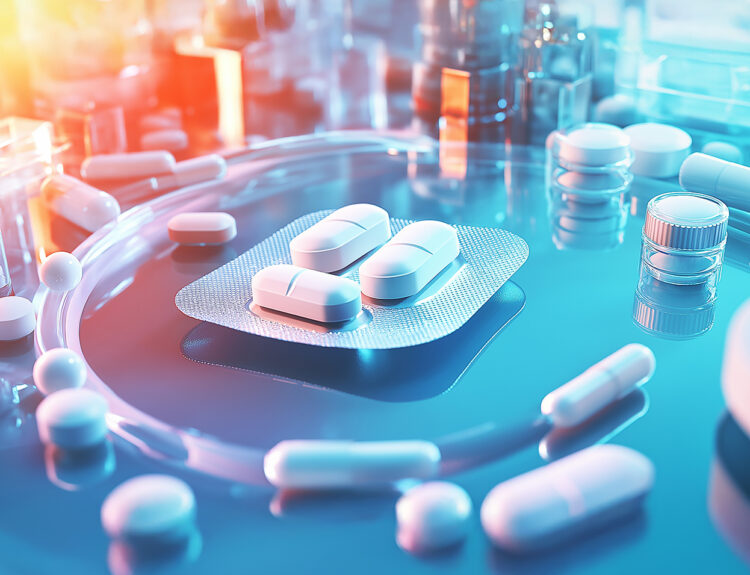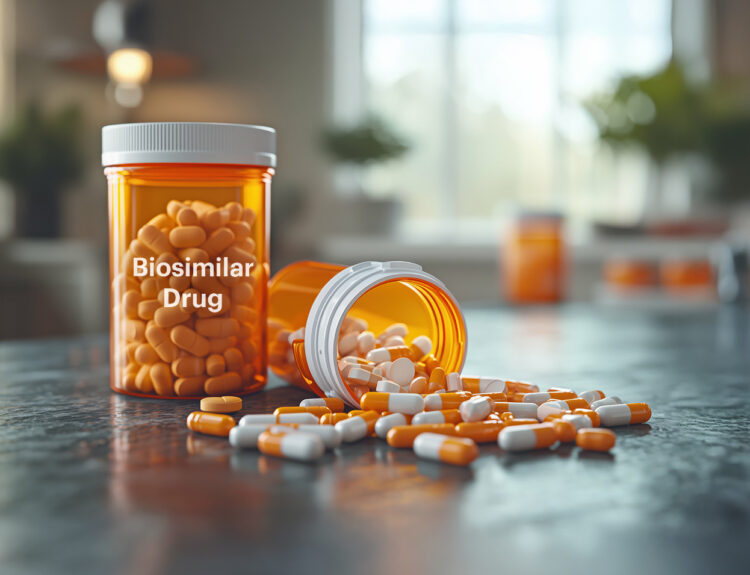Psilocybin, a psychedelic drug found in magic mushrooms, has shown promise as a treatment for depression.
The 5-HT2A serotonin receptors on the surface of particular neurons are the exact target of psychedelic drugs, according to new research in animal models, but this compound does not have the same psychedelic effects when administered to mice.
According to prior research, psychedelic drugs like LSD (acid) and psilocybin (magic mushrooms) have the potential to treat depression but can also occasionally result in unsettling hallucinations. Two novel drugs that target the same subtype of serotonin receptors as LSD and psilocybin do not cause hallucinations, according to recent research. These novel compounds demonstrated antidepressant and anti-anxiety effects in animal models at lower doses than Prozac, similar to psychedelic drugs.
New research points to psychedelic drugs as a promising therapeutic choice for depression that is difficult to treat.
The ability of psychedelic drugs like lysergic acid diethylamide (LSD) and psilocybin to activate the serotonin 5-HT2A receptors on the surface of brain cells has been linked to their antidepressant and anti-anxiety effects.
However, by stimulating the 5-HT2A receptor, psychedelic drugs can have adverse effects that are hallucinogenic. The β-arrestin-2 and the Gq proteins are involved in two distinct signaling pathways that can be activated by the 5-HT2A receptor inside cells.
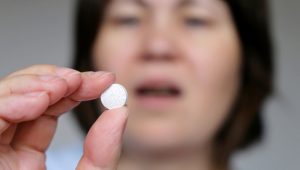
Previous research have demonstrated that the signaling pathway involving the β-arrestin-2 protein is largely responsible for the hallucinogenic effects of LSD. Therefore, it is possible that drugs that activate the 5-HT2A receptor but not the β-arrestin-2 pathway could aid in the treatment of depression without causing undesirable side effects like hallucinogenicity.
Oregon is scheduled to launch a ground-breaking real-world experiment in psychedelic medicine in January 2023. This comes after a ballot initiative in 2020 that urged the state to start building the necessary infrastructure to make the hallucinogenic drug psilocybin accessible as a treatment for mental health conditions like depression and anxiety. Similar legislation was passed in Canada in January 2022, though with much stricter restrictions, allowing designated clinicians to prescribe psilocybin to patients with severe, untreatable mental illnesses like severe depression.
Psilocybin on Trial
|
Year |
Subjects | Lead investigator | Indication | Outcome |
|
2011 |
12 |
Charles Grob (University of California, Los Angeles) |
Cancer-related anxiety (with depression as a component) |
Significant reduction in symptoms associated with depression after 6 months |
|
2016 |
12 | Robin Carhart-Harris (Imperial College London) | Treatment-resistant depression |
After 1 week, 58% were in remission, and 3 months later, 42% were still in remission. |
|
2016 |
29 | Stephen Ross (New York University) | Cancer-related anxiety or depression | 7-week response rate of 83% compared to 14% for the control arm |
| 2016 | 51 | Roland Griffiths (Johns Hopkins University) | Cancer-related anxiety or depression |
65% of patients in remission after 6 months on a high dose, with a response rate of 78% |
|
2021 |
24 | Roland Griffiths (Johns Hopkins) and Alan Davis (Ohio State University) | Major depressive disorder | 71% of patients responded, and after 4 weeks, 54% were in remission. |
| 2021 | 59 | Robin Carhart-Harris (Imperial College London) | Moderate to severe major depressive disorder |
Similar improvement to escitalopram after 6 weeks and a higher remission rate (57% vs. 28%) |
This study, which was published in Nature, demonstrates that it is possible to develop a substance that, when administered to mice, targets the same precise receptors that psychedelic drugs do, namely, the 5-HT2A serotonin receptors on the surface of particular neurons. With just two differences: the anti-depressant action of the new compound was immediate and long-lasting after just one dose, in contrast to the anti-depressant action that researchers have long observed in mice treated with SSRI medications over the past two decades.
This drug, as well as the ‘magic mushrooms’ from which it is derived, are still illegal in the United States and Canada, as they are in the majority of countries. However, psilocybin is gaining popularity as a potential therapeutic. The most buzz has centered on the treatment of depression, with half a dozen clinical trials demonstrating that a few doses of psilocybin can provide long-term remission for people who have previously struggled to find relief.
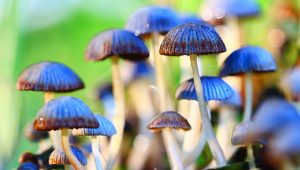
Evidence of Mushrooming
Robin Carhart-Harris became interested in the therapeutic potential of psilocybin after conducting a series of experiments at Imperial College London in 2012, in which his team used functional magnetic resonance imaging to scan the brains of healthy volunteers who had taken the drug.
Following up on this research, Carhart-Harris and his colleagues in London established one of the first modern clinical trials of psilocybin for depression. It was small, with only 12 participants suffering from treatment-resistant depression, and it lacked a control arm due to financial constraints. However, the results were startling. The participants all showed a significant reduction in depression symptoms after two doses of psilocybin combined with psychiatric therapy. After the second dose, five of them remained in remission for at least three months.
With more participants and a randomized controlled trial design, subsequent studies have provided stronger evidence. People with depression who were treated with psilocybin saw their symptoms improve more than twice as much as those in the control group, according to a study led by Alan Davis at Ohio State University in Columbus and Roland Griffiths at Johns Hopkins University in Baltimore, Maryland. A phase II double-blind trial published by Carhart-Harris and colleagues found that two doses of psilocybin were as effective as a six-week course of the SSRI antidepressant escitalopram. In the trial arm, remission rates were twice as high, and psilocybin had a marginally better safety profile.3
What effect does Psilocybin have on the brain?
When a person consumes a magic mushroom, the active ingredient psilocin binds tightly to the 5-HT2A serotonin receptors on the surface of neurons. The receptor is activated for an extended period of time, resulting in a cascade of chemical signals inside cells. These cells then communicate with other cells throughout the brain, sending the individual on an hour-long strange hallucinogenic trip. For those who are resistant to treatment, psychedelic drugs can relieve depression immediately and for many months.1
Vollenweider and colleagues also emphasize the drug’s effect on functional networks in the brain. The default mode network, for example, is an interconnected set of nodes in the cerebral cortex involved in self-perception and self-awareness. People suffering from depression may find themselves trapped in a cycle of excessive self-consciousness, but brain imaging data suggest that psilocybin may be able to break such vicious cycles by reducing connectivity in the default mode network.3
Ketamine, which is used as an anesthetic in medicine, has also become a treatment for severe depression. The FDA approved esketamine (Spravato), a prescription version of ketamine administered via nasal spray, in 2019. This drug is expensive and must be used under the supervision of a medical professional. Ayahuasca, a brew made from two psychoactive plants, has been shown in uncontrolled clinical trials to have antidepressant properties. It, as well as one of its active ingredients, N, N-dimethyltryptamine, also known as DMT, is illegal in the United States.
Selective serotonin reuptake inhibitors (SSRIs) modulate serotonin signaling in a different way than psychedelic drugs. SSRIs also increase serotonin levels in cells throughout the body, which is likely one of the reasons these medications can cause such a wide range of unpleasant side effects. Although SSRIs cause an immediate increase in serotonin in the brain, most people who take them do not feel the antidepressant effect for several weeks.
To treat depression, scientists considered developing a compound that selectively targets the 5-HT2A receptor but activates it in a way that alters brain chemistry, leaving the trippy pathway alone while avoiding the side effects associated with SSRIs.
In the mouse model, the compound not only bound the 5-HT2A serotonin receptor as expected, but it also had the same anti-depressant drug action as ketamine but not the same hallucinogenic drug action.
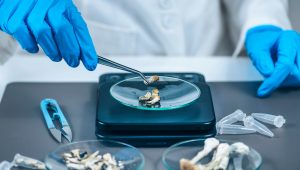
It remains to be seen whether this drug or others like it can truly provide a one-dose, long-lasting antidepressant effect for people suffering from treatment-resistant depression, severe anxiety, and other conditions. However, this study suggests that it is possible.
Psilocybin trials are complicated by the need for psychiatric care from specially trained medical professionals. This is typically a multi-visit process that includes preparing participants for treatment, facilitating the psilocybin trip, and then supervising an integration process following the treatment.
Nonetheless, this seminal study is ushering in a new era in the treatment of depression.

MDForLives is a global healthcare intelligence platform where real-world perspectives are transformed into validated insights. We bring together diverse healthcare experiences to discover, share, and shape the future of healthcare through data-backed understanding.

